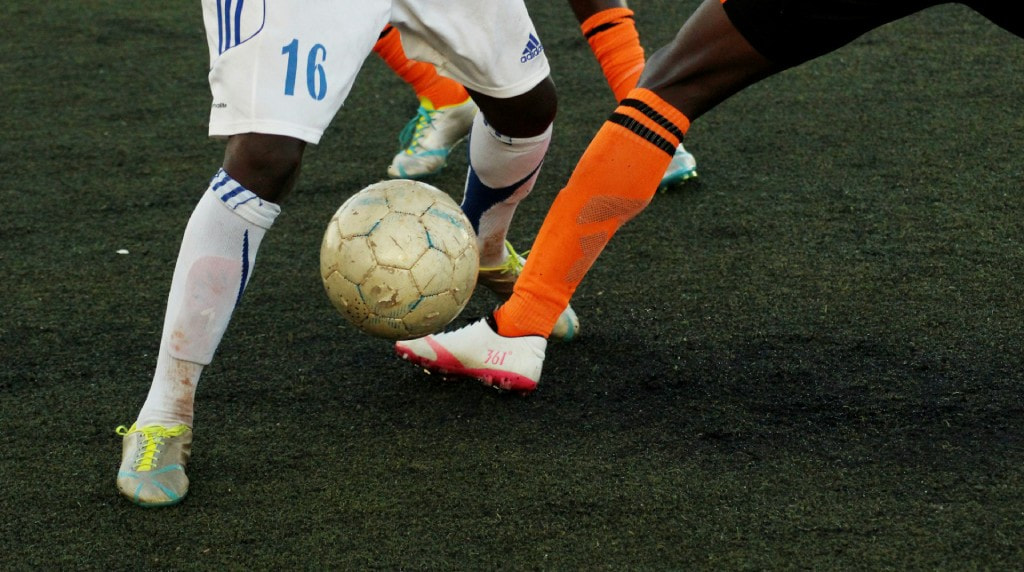SCGO Limited Becomes the Latest iGaming Operator to Gain License in the Netherlands
Malta-based iGaming operator, SCGO Limited, recently became the latest gambling provider to enter the regulated market of the Netherlands. The Dutch Gambling and Supervisory Authority, de Kansspelautoriteit (KSA), granted the Maltese operator a B2C license that makes it eligible to offer chance-based games online to gamblers residing in the KSA’s jurisdiction. The validity of the permit is five years starting from June 23, 2023. After securing the Dutch gambling license, SCGO Limited became the 24th licensed operator to enter the regulated gambling jurisdiction of the Netherlands under the Remote Gambling Act (KOA).

The Maltese operator SCGO Limited was granted with B2C license from the Dutch Gambling and Supervisory Authority.
©Michal Soukoup/Unsplash
The Netherlands is one of the many countries in Europe that allows the general public to participate in several segments of gambling that include online betting and iGaming. This is a recent development as the Dutch online gaming market went live in 2021 after the KOA was brought into force. Established in 2021, the KSA remained the sole gambling supervisory and regulatory authority in the Netherlands. It is one of the strictest gambling regulators on the European continent, as it has implemented stringent measures to make sure that its gambling market follows the highest standards of operation, compliance, and consumer protection. Focusing on both gambling segments – land-based and online – the KSA is also responsible for issuing licenses to gambling operators that submit applications to enter the Dutch gambling market legally. After issuing the license, the regulator continues to monitor the operation of these gambling providers to ensure that all directives under the KOA are being followed. If an operator fails to comply with the gambling law of the country, the KSA has the power to issue fines and sanctions against them.
The process of obtaining a gambling license from the KSA in the Netherlands is long and tedious. The Dutch Gambling Authority scrutinizes each application thoroughly. An operator must comply with the gambling addiction prevention measures required to curb problem gambling in the country. In addition, they must also have deposit limits in place to safeguard problematic gamblers who may be at risk of losing all their money. These limits can be changed every 24 hours. Under the Dutch gambling law, the licensed operators are obligated to intervene immediately if any problematic gambling traits are detected by the operator itself or by the Dutch Gambling Authority. The ultimate goal of the KSA is to create an environment that protects the young and vulnerable audiences of the country from aggressive advertising that could make gambling offers look lucrative. Hence, the country has imposed a ban on untargeted advertising for all gambling segments. The regulation was published by the Dutch Ministry of Justice in April this year and will come into effect on July 1, 2023.
The KSA offers several types of licenses, including a license for slot machines, a multi-year lottery, and a remote gambling license for online operators. The remote gambling license permits operators to provide various types of games and bets, including casino games where a player plays against the house, casino games where players play against each other, sports betting, horse racing, and harness racing. To apply for a license, operators must submit an application along with a non-refundable fee of €48,000. The Dutch Gambling Authority maintains the right to deny approvals. If an application is rejected by the KSA, the applicant will not receive any refund. On an average, an operator has to wait for six months for the KSA to accept or deny its application. However, the KSA reserves the right to extend that time period by another six months. SCGO Limited became the latest operator to earn a legal entry into the Dutch gambling market after its license application was met with a seal of approval from the KSA.
SCGO intends to offer a plethora of games via Vbet
After gaining one of the most significant gambling permits in Europe, SCGO Limited became the 24th gambling operator to enter the Dutch gambling market. The Maltese operator has been entering multiple gambling jurisdictions since its inception about 14 years ago. However, it is not entering as an entity itself but instead has secured licenses for its brand, Vbet. Vbet is licensed in more than ten regulated jurisdictions worldwide, with The Netherlands becoming the latest one.
SCGO Limited is yet to confirm the brand name under which it will operate in the Netherlands. It has been granted a Remote Gambling License under the KOA. The operator also holds multiple licenses issued by the Malta Gambling Authority (MGA), under which it runs a full-fledged operation. However, the MGA license is not recognized in the Dutch jurisdiction, therefore, SCGO had to obtain a separate permit from the KSA to operate in the Netherlands. The new permit came into effect on from June 23, 2023, and will be valid for 5 years, until June 22, 2028.
The requirements for obtaining a Remote Gambling License from the KSA are quite tedious. The Remote Gambling Act states that any applicant wishing to become an operator in the Dutch country, must have a representative in the country’s jurisdiction, in the field of addiction prevention. The applicant must comply with the Remote Gambling Act and other gambling laws and regulations in the Netherlands, failing which, the application may be rejected, or fines and sanctions may be imposed by the KSA.
KSA has proposed regulatory changes to the Dutch government
In light of the increasing number of gambling operators in the country, the KSA has put forth certain changes in the gambling policy of the country to the Dutch authorities. The Dutch government is going to conduct a detailed planned review of the KOA next year, however, the KSA has deemed that its proposed changes are too crucial to wait for the review and must be enforced immediately. The Netherlands has recorded a year-on-year increase in the number of iGaming players in the country. The number of player accounts increased by 52.6% from July 2022 to January 2023. The country’s gross gaming revenue also went up by 37.7% from January 2022 to January 2023. Therefore, the KSA feels it is impertinent to bring about the regulatory changes immediately.
One of the most important proposals is to allow the Dutch Gambling Authority to create dummy accounts and register with the gambling operators randomly to check whether the operators are complying with KSA’s regulatory requirements. Another proposal is for the players to be involuntarily added to The Central Register Uitsluiting Kansspelen (CRUKS) list at the request of relatives, friends, or operators. The KSA believes that the number of self-registered players is so low that it is not really helping to tackle gambling addiction. The final change proposed is to bring the laws regarding land-based slots in line with current regulations and technical developments. The KSA suggested these laws must be in line with the legislation for online gambling.



